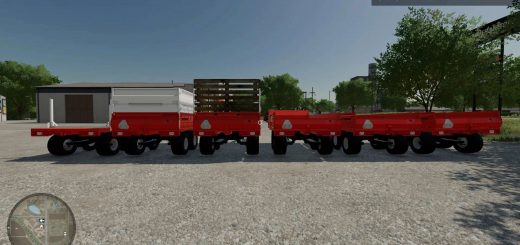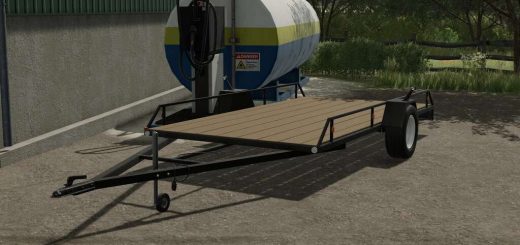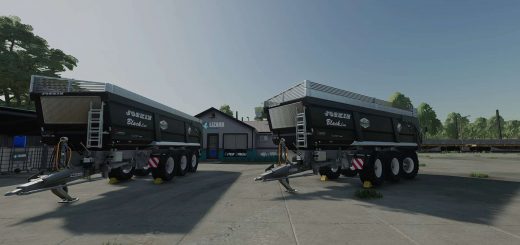LS22 Small Flatbed Trailer Autoload Pack v1.0.0.1

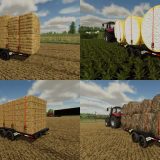
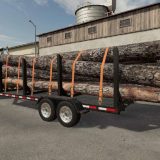
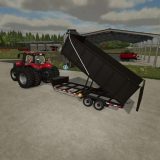
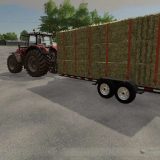
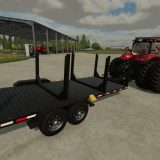
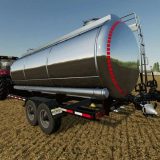
LS22 Small Flatbed Trailer Autoload Pack v1.0.0.1
Small Flatbed Trailer With Tipper and Logging Options
Changelog 1.0.0.1
Added support for FS22_SelectableBaleCapacity mod’s 2x, 3x, and 4x bales.
Added rear strobe lights. Uses standard beacon light key to activate.
The trailer frame, rims, and tipper body are all color selectable.
The trailer has 4 different body configurations:
Standard flatbed bale/transport trailer (cost $15,500).
Tipper body without cover (additional cost $15,000).
Add cover to tipper body (additional cost $1,000)
Log forks (additional cost $1,500).
Added a liquid tank (cost $10,000) and slurry/digestate spreader with an 18 meter work width (cost $2,500) as an additional configuration.
Can be configured as a flat hitch or a gooseneck trailer hitch.(cost $1,500).
The gooseneck coupler height is adjustable for different vehicles.
A rear trailer hitch is also an option. (cost $100)
The standard Lizard tires and rims are custom made.
The trailer is equipped with ramps for loading and transporting small machinery.
The ramps work both with the flatbed option and the tipper body options to load small machines in the tipper body.
The cover has a collision and there cannot be a vehicle or other products in the tipper when closing it.
Tipper capacity – 22,440 Liters.
Can carry up to 8 meter logs.
Flatbed trailer can be configured to autoload round and square bales.
There are 4 different trailers in this pack.
Bale capacities for the trailers in this pack are:
150 Small Square Bales (1.2 meter Conventional Bales)
16 1.8 meter Square Bales
16 2.2 meter Square Bales
16 2.4 meter Square Bales
16 1.25 meter Round Bales
16 1.5 meter Round Bales
16 1.8 meter Round Bales
3 Round Cotton Bales
1 Square Cotton Bale
To use autoload, key “B” starts and stops loading.
Then key “Y” is for unloading bales using the left mouse button to place them where desired or to unload them directly to the bed for manual unloading.
After unloading, key “Y” must be pressed again to “reset” the autoloading process for the next load.

